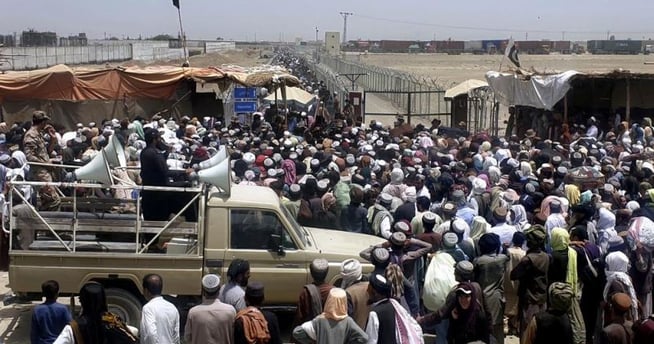Ishaq Dar Reviews Afghan Relocation Process Amid Lingering Delays
NEWS


Ishaq Dar Reviews Afghan Relocation Process Amid Lingering Delays
Deputy Prime Minister and Foreign Minister Ishaq Dar chaired a meeting on Saturday to assess the ongoing process of relocating Afghan nationals awaiting resettlement in third countries, according to a statement from the Foreign Office (FO).
The meeting also addressed the recent boat tragedy off Morocco's coast, which claimed the lives of several Pakistanis. Mr. Dar directed the Ministries of Foreign Affairs and Interior to ensure timely assistance to the victims and their families. A government team, including senior officials from the FIA, the Ministry of Interior, and the Ministry of Foreign Affairs, will visit Morocco to assess the situation and provide a detailed report to the prime minister.
Regarding the Afghan relocation issue, the FO statement did not specify any decisions made during the meeting. Since the Taliban takeover of Afghanistan in August 2021, at least 44,000 Afghans approved for relocation to western countries remain in Pakistan. These include:
25,000 bound for the United States
9,000 for Australia
6,000 for Canada
3,000 for Germany
More than 1,000 for the United Kingdom
Despite commitments from Islamabad and international partners, the relocation process has been slow, with minimal progress since its initiation in late 2021. Pakistan has urged western governments to expedite their approval and visa procedures.
Following the chaotic US-led NATO withdrawal from Afghanistan, over 120,000 Afghans were evacuated, and approximately 1.25 million have since fled the country, with 600,000 entering Pakistan. However, efforts to relocate those approved for third-country resettlement have been hindered.
In November 2023, Pakistan launched a drive to expel undocumented foreigners, resulting in the repatriation of over 815,000 individuals, including many Afghans. Despite reports of forced repatriation, Islamabad denied targeting those approved for relocation and directed law enforcement agencies to avoid detaining such individuals.
While the FO and related ministries did not provide updated figures, the slow pace of progress underscores the urgency of addressing this critical humanitarian issue.
